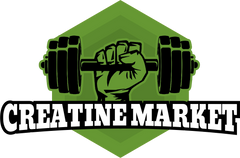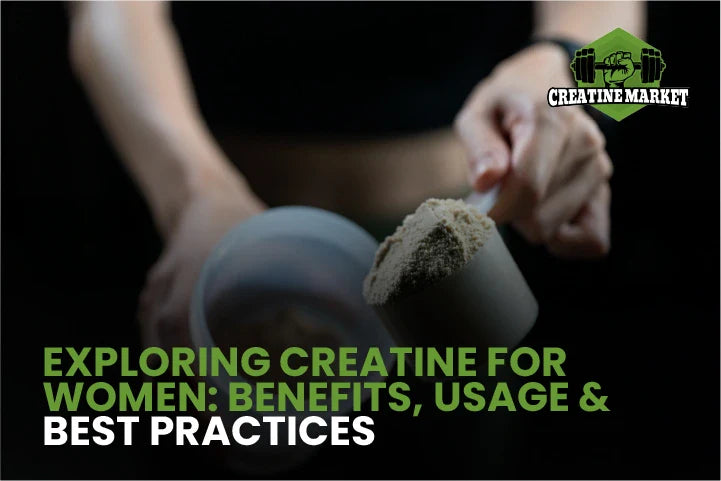Creatine stands as one of the most studied and effective supplements in the fitness world, backed by decades of research and countless success stories. This comprehensive guide will walk you through everything you need to know about this powerful supplement.
What Is Creatine?
Creatine is a naturally occurring compound found in muscle cells that plays a crucial role in energy production, particularly during high-intensity, short-duration activities. Your body produces about 1 gram of creatine daily, and you can obtain additional amounts from foods like red meat and fish, though supplementation offers a more concentrated source.
How Does Creatine Work?
Creatine works by increasing your body's stores of phosphocreatine, a vital molecule that helps form ATP (adenosine triphosphate), your cells' primary energy source. During intense exercise, your muscles can quickly access this stored energy, leading to improved performance and enhanced recovery.
Is Creatine Good For Beginners?
Creatine can be an excellent supplement for beginners who are committed to regular strength training or high-intensity exercise, as it helps improve workout performance and recovery from the start of their fitness journey. The supplement is particularly beneficial for newcomers because it can help them push through more reps and recover faster between sets, allowing them to build strength and muscle more effectively in those crucial first months of training.
Since beginners of creatine use often see rapid initial progress in their training (known as "newbie gains"), adding creatine can help them maximize these early results and stay motivated to continue their fitness journey.
Benefits of Creatine Supplementation
Research consistently demonstrates several key benefits:
Muscle Growth and Strength Creatine enhances your ability to perform high-intensity work during training sessions, leading to greater muscle growth and strength gains over time. Studies show it can increase muscle fiber growth and improve weightlifting performance by up to 14%.
Athletic Performance Athletes across various sports benefit from creatine's ability to enhance: - Power output during short, intense bursts of activity - Sprint performance and jumping ability - Recovery between high-intensity intervals - Muscle endurance during repeated efforts
Cognitive Function Recent research suggests creatine may support brain health and cognitive function, particularly during stressful or mentally demanding tasks.
How to Take Creatine
Recommended Dosage The standard maintenance dose is 3-5 grams daily. While some people opt for a loading phase of 20 grams daily for 5-7 days, this isn't necessary – it simply speeds up the saturation process.
- Timing: You can take creatine at any time of day. Some prefer taking it pre- or post-workout, but research shows timing has minimal impact on its effectiveness.
- What to Mix It With: Creatine can be mixed with: - Water - Protein shakes - Pre-workout drinks - Juice
Safety and Side Effects
Creatine is generally considered safe, with an excellent safety profile backed by extensive research. Common concerns and facts:
- Water Retention: Initial weight gain of 2-4 pounds is normal and primarily due to increased water retention in muscle tissue.
- Kidney Health: Despite myths, research shows creatine is safe for healthy individuals and doesn't harm kidney function.
- Digestive Issues: Some people may experience mild digestive discomfort, which can usually be resolved by: - Taking smaller doses - Consuming with meals - Staying well-hydrated
Choosing the Right Creatine Product
Types of Creatine: While various forms exist, creatine monohydrate remains the most studied and cost-effective option. Other forms include:
- Creatine HCL
- Creatine Ethyl Ester
- Buffered Creatine
However, research hasn't shown significant advantages of these alternatives over the standard monohydrate form.
Tips for Success: To maximize your results with creatine supplementation:
- Choose a reputable brand with third-party testing
- Stay consistent with daily intake
- Maintain adequate hydration
- Combine supplementation with proper training and nutrition
- Give it time – full benefits typically appear after 4-8 weeks of consistent use
Common Myths Debunked
Let's address some persistent myths:
- Creatine is not a steroid and doesn't work like one
- You don't need to cycle creatine; continuous use is safe and effective
- It's beneficial for both men and women
- You don't need to load creatine to see results
Conclusion
Creatine stands out as one of the most effective and well-researched supplements available. Whether you're an athlete looking to enhance performance or someone interested in building muscle and strength, creatine supplementation can be a valuable addition to your routine. With proper usage and realistic expectations, you can harness the benefits of this powerful supplement while maintaining safety and effectiveness in your fitness journey.




